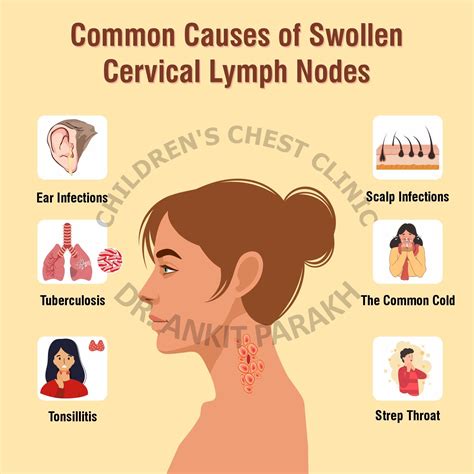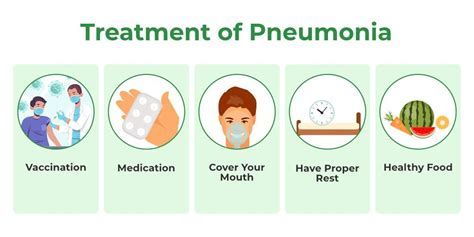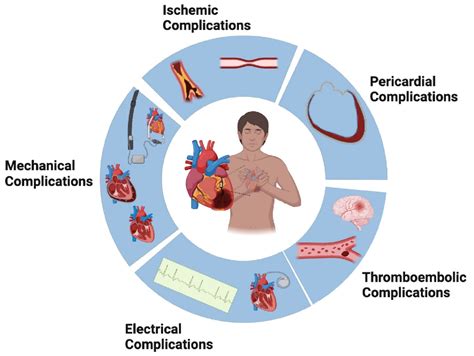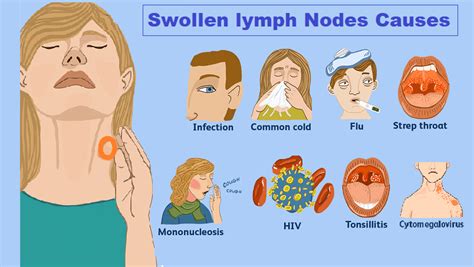Intro
Discover 5 reasons nodes swell, including infection, inflammation, and cancer. Learn about lymph node swelling causes, symptoms, and treatments, and understand how to manage swollen nodes and promote lymphatic health.
The human body is a complex and fascinating system, and one of its many mysteries is the lymphatic system. The lymph nodes, in particular, play a crucial role in our overall health and well-being. However, sometimes these nodes can become swollen, causing discomfort and concern. In this article, we will delve into the world of lymph nodes and explore the reasons why they might swell. Whether you're a health enthusiast or simply looking to understand your body better, this article is for you.
Lymph nodes are small, bean-shaped structures that are part of the lymphatic system. They are located throughout the body, with clusters found in the neck, armpits, and groin. The lymph nodes act as filters, trapping bacteria, viruses, and other harmful substances that could make us sick. When the lymph nodes detect a problem, they spring into action, producing white blood cells to fight off the infection. However, sometimes this process can cause the nodes to become swollen, leading to a range of symptoms and concerns.
The swelling of lymph nodes can be a worrying experience, especially if you're not sure what's causing it. In some cases, the swelling may be a sign of a more serious underlying condition, while in other cases, it may be a temporary and harmless reaction. To better understand the reasons behind swollen lymph nodes, let's take a closer look at the possible causes. From infections and allergies to injuries and diseases, we'll explore the various factors that can contribute to swollen lymph nodes.
Introduction to Lymph Node Swelling

Types of Lymph Node Swelling
There are several types of lymph node swelling, each with its own set of characteristics and causes. Localized lymphadenopathy, for example, occurs when the swelling is limited to a specific area of the body, such as the neck or armpits. Generalized lymphadenopathy, on the other hand, occurs when the swelling is widespread and affects multiple areas of the body. In some cases, the swelling may be chronic, lasting for weeks or even months, while in other cases, it may be acute, lasting only a few days.Common Causes of Lymph Node Swelling

Symptoms of Lymph Node Swelling
The symptoms of lymph node swelling can vary depending on the underlying cause. In some cases, the swelling may be accompanied by other symptoms such as: * Pain or tenderness in the affected area * Redness or inflammation of the skin * Fever or chills * Fatigue or weakness * Weight loss or loss of appetiteDiagnosis and Treatment of Lymph Node Swelling

Prevention and Self-Care
While it's not always possible to prevent lymph node swelling, there are steps you can take to reduce your risk. Practicing good hygiene, such as washing your hands regularly, can help prevent the spread of infections. Getting vaccinated against diseases such as the flu or HPV can also help reduce your risk. Additionally, maintaining a healthy lifestyle, including a balanced diet and regular exercise, can help boost your immune system and reduce your risk of illness.Complications and Risks

Seeking Medical Attention
If you're experiencing swollen lymph nodes, it's essential to seek medical attention. The doctor will perform a physical examination and take a medical history to determine the underlying cause. In some cases, the doctor may refer you to a specialist, such as an oncologist or rheumatologist, for further evaluation and treatment.Living with Lymph Node Swelling

Coping with Emotional and Psychological Aspects
The emotional and psychological aspects of living with lymph node swelling should not be underestimated. It's common to feel anxious, scared, or overwhelmed when dealing with a health issue. However, by seeking support and practicing self-care, you can manage your emotions and improve your overall well-being.Conclusion and Next Steps

Final Thoughts
Lymph node swelling is a complex condition that requires a comprehensive approach to diagnosis and treatment. By working with your healthcare provider and practicing self-care, you can manage your symptoms and improve your quality of life. Remember, it's essential to seek medical attention if you're experiencing swollen lymph nodes, as prompt treatment can reduce your risk of complications and improve your overall health and well-being.What are the common causes of lymph node swelling?
+Lymph node swelling can be caused by a variety of factors, including infections, allergies, injuries, autoimmune disorders, and cancer.
How is lymph node swelling diagnosed?
+Diagnosing the cause of lymph node swelling typically involves a combination of physical examination, medical history, and laboratory tests, such as biopsies or imaging tests.
What are the symptoms of lymph node swelling?
+The symptoms of lymph node swelling can vary depending on the underlying cause, but may include pain, redness, fever, fatigue, and weight loss.
How is lymph node swelling treated?
+Treatment for lymph node swelling depends on the underlying cause and may include antibiotics, anti-inflammatory medications, or surgery.
Can lymph node swelling be prevented?
+While it's not always possible to prevent lymph node swelling, practicing good hygiene, getting vaccinated, and maintaining a healthy lifestyle can help reduce your risk.
